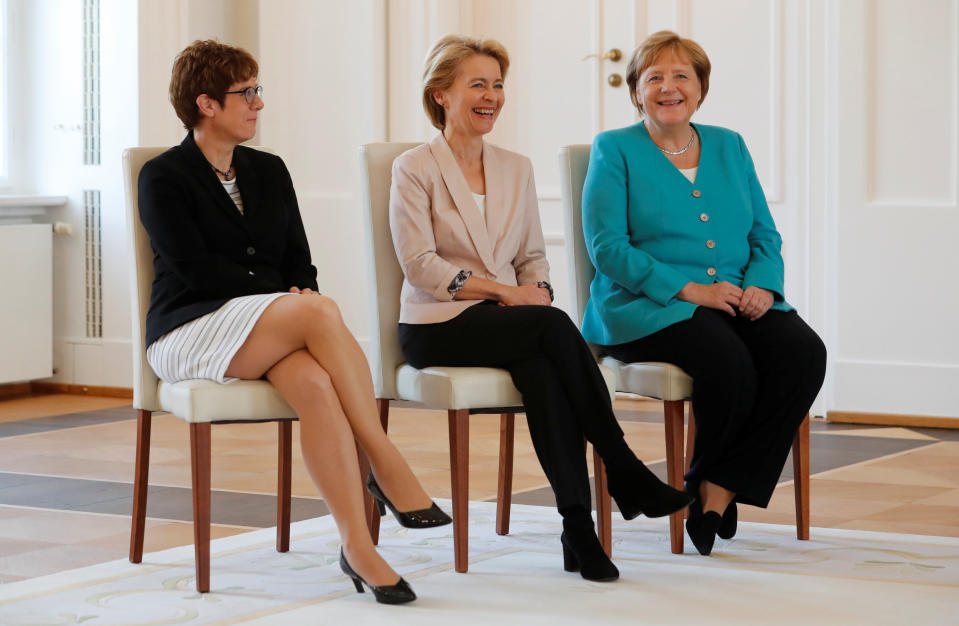Merkel’s chess: Von der Leyen wins Europe, AKK gets German defence role

German chancellor Angela Merkel celebrates her 65th birthday today with a couple of high-profile personnel moves that suggest that Europe’s longest-serving leader still has the power to get what she wants.
On Tuesday night, Merkel issued a statement welcoming the election of her former German defence minister Ursula von der Leyen as the next president of the European Commission. Merkel said that “after 50 years, there will again be a German at the head of the European executive,” adding “even though today I’m losing a minister, I am winning a new partner in Brussels.”
Hot on the heels of Von der Leyen’s narrow victory, it was announced that Merkel’s chosen successor, Annegret Kramp-Karrenbauer, will replace Von der Leyen as German defence minister.
It came as somewhat of surprise because AKK, as she is known, said this month she was not interested in a cabinet job, because she had a lot to do as leader of the Christian Democratic Union (CDU).
When Merkel handed over the party leadership to her protégé at the end of 2018, AKK was teed up as a strong candidate for Germany’s next chancellor when Merkel steps down in 2021.
Since then, however, the former state premier of the Saarland has failed to impress, and provoked anger, for example, by suggesting there should be online censorship of political opinion-formers and making a joke about transgender people.
Her popularity has fallen steadily: a Forsa poll in May showed that 70% of Germans, and 52% within her own party, thought she was not fit to replace Merkel.
Maneuvering AKK into the defence job, her first cabinet post, could increase the CDU leader’s political clout in Berlin. On the other hand, it is a regarded as a rather risky move — overseeing Germany’s underfunded and scandal-ridden military is a thankless task described as a “political ejector seat”, or career-killer, in Germany.

 Yahoo Sports
Yahoo Sports 